news
Update : The four tax reform bills are not against the interest of the North and No dissolution of key federal agencies, Says Onanuga
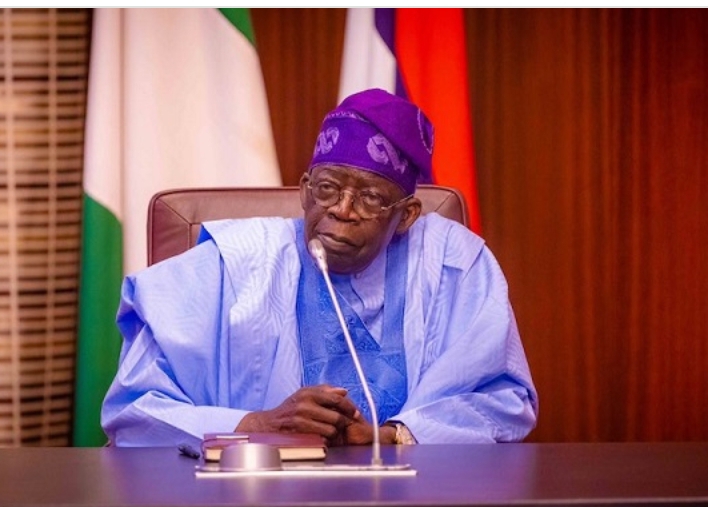
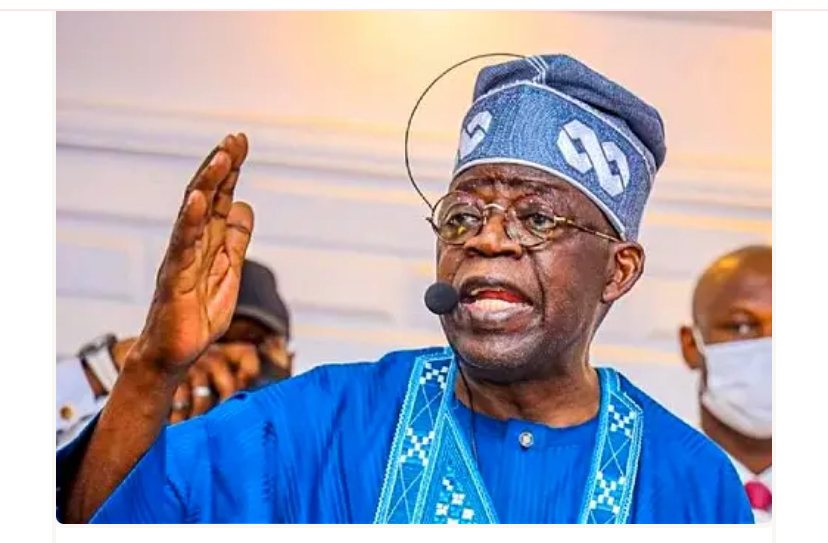 ….No plan to scrap TETFund, others
….No plan to scrap TETFund, others
.,…Dogara, Dickson: Bill in order
Kano House kicks
Apart from refuting the claims that the bills will undermine the economy of any region, the Presidency also clarified that the reforms are designed to streamline tax administration and promote equitable economic development across the country.
The bills have scaled the second reading in the Senate. It is now at the committee stage where it will undergo public hearing.
Also yesterday, Senator Seriake Dickson and former House of Representatives Speaker Yakubu Dogara, gave reasons why the tax reform is desirable and passage of the bills is necessary at this time.
While Senator Dickson (PDP Bayelsa) is optimistic of the bills’ passage, Dogara said the bills would make the North self-reliant hence the region should support it.
Also, House of Representatives spokesman, Akin Rotimi, confirmed that member of the House of Representatives had been informed of the postponement of discussions on the tax bills. The debate ought to hold today.
He said: “The postponement is due to the need for further and broader consultations with all relevant stakeholders.”
Kano State House of Assembly yesterday kicked against the bills, calling on the National Assembly to reject them. It made this position known after its sitting.
Presidential Spokesman Bayo Onanuga also refuted claims that the bills recommended the dissolution of key federal agencies, such as the National Agency for Science and Engineering Infrastructure (NASENI), Tertiary Education Trust Fund (TETFUND), and National Information Technology Development Agency (NITDA).
Onanuga said: “Since the public debate around the transformative tax bills before the National Assembly began in the last few weeks, various political actors and commentators have tried to obfuscate the facts, deliberately misinforming and misleading the public.
“Unfortunately, most reactions are not grounded in facts, reality, or sufficient knowledge of the bills. While some commentators have attempted to incite the people against lawmakers, others have polarised one section of the country against another.
“The tax reform bills will not make Lagos or Rivers more affluent and other parts of the country, as recklessly canvassed, poorer. The bills will not destroy the economy of any section of the country. Instead, they aim to enhance the quality of life for Nigerians, especially the disadvantaged, who are trying to make a living.
“Contrary to the lies being peddled, the bills do not suggest that NASENI, TETFUND, and NITDA will cease to exist in 2029 after the passage of the bills.
“Government agencies, such as NASENI, TETFUND, and NITDA, are funded through budgetary provisions with company income tax and other taxes paid by the same businesses that are being overburdened with the special taxes.
“One reason President Bola Tinubu embarked on the Tax and Fiscal Policy Reforms is the need to streamline tax administration in Nigeria and make the operating environment conducive for businesses.
“For decades, businesses, investors, and private sector players in Nigeria have complained of being overburdened by a myriad of taxes and levies, including those earmarked to fund various government agencies and initiatives.
“The multiple taxes complicate the economic environment, making Nigeria uncompetitive for investment and preventing many businesses from growing or continuing their operations.
“Some companies have had to make the rational decision to relocate to other countries. We cannot continue on this path or wait for 20 years if this country is to deliver the prosperity we need for our people.
“The proposal, as contained in Section 59(3) of the Nigeria Tax Bill, only seeks to consolidate some of the earmarked taxes imposed on companies and replace them with a single tax to be shared with the key agencies as beneficiaries in a phased manner until 2030.
“The time frame offers ample opportunity for the affected agencies to explore other funding sources in addition to budgetary allocations in line with the constitution and international best practices.
“It is a misrepresentation of facts to conclude that changing an agency’s funding source amounts to scrapping it. None of the countries leading globally in education, science, engineering, or information technology have similar earmarked taxes.
“The government imposes major taxes, be it income tax, consumption tax, or other taxes, to channel resources to its areas of priority at the time. Imposing a separate tax to fund an agency is an aberration that has yet to yield results despite the huge burden on businesses. The tax bill seeks to address this problem.
“Relevant stakeholders and public analysts owe it a duty to properly educate themselves about the bills’ contents and avoid misleading the public for any reason. We may be entitled to our opinions, but such views must be informed and based on facts, not emotions targeted at inflaming passions.
“In a period like this, when our people across the country look up to leaders for guidance and direction on matters of public importance, such as the Tax Reform Bills, leaders should be more measured in their public utterances to avoid heating the polity and polarising the country unduly.
“President Tinubu welcomes the public interest these bills have generated. He encourages leaders across the country, including governors, traditional rulers, civil society activists, students, trade associations, professional associations, and the general public, to take advantage of the Public Hearings that the National Assembly will organise to present their views on how best to reform our taxes and fiscal regime.
“What is never in doubt is the imperative of changing the existing tax laws and administration that have become obsolete and unhelpful in achieving the growth and development we desire for our country”, the statement said.
National Assembly will pass bills, says Dickson
Dickson, Chairman of the Senate Committee on Ecology and Climate Change, said the opposition to the bills notwithstanding, the Senate would pass them in national interest.
He also allayed the fear in some quarters that the planned public hearing would be chaotic, if it is not postponed for further consultations.
“Those opposed to the bills should come to the public hearing with facts, if they have issues with any section of the bills.
“During the debate on the PIB, the Niger Delta leaders asked for 10% of the Operating Expenses or Expenditure (OPEX) of oil companies for host communities, but only 3% was granted.
“The late President Umaru Musa Yar’adua proposed 10% for the host communities, the National Assembly passed three per cent after about two decades without any protest.
He said: “The Senate has passed the Tax Reforms Bills for second reading. Public hearing will take place and people should get ready to present their positions. The tax bill is a law like every other law and it has to go through the normal legislative process.
“Right now, taxes from Bayelsa State are paid to Lagos State and I don’t want that to continue. When there is consumption of goods or services from any state it should be calculated and paid to that state.
Why I’m opposed to Tax Reform Bills, by Zulum
RHAN commends Senate as Tax Reform Bills scales through second reading
“Now there is an opportunity to review the tax laws, to correct the anomalies and that’s why I’m in support.“I know there are states that are feeling that when they apply the new sharing formula, they will earn less. It’s for them to raise those issues and bring the statistics. I don’t go by sentiments. I go by what is right and in the national interest.”
“Forget about uproar, there will be no uproar. Public hearing is an opportunity for people to present their matters, and nobody is going to be intimidated by uproar.
“The PIA was passed. We wanted 10%, which was what Yar’adua proposed. They (federal lawmakers) reduced it to 3%. Heaven did not fall. This tax reform bills will pass and heavens will not fall.”
Dickson spoke during an interaction with reporters at the National Assembly.
Dogara: North should accept reforms
Speaking on a national television programme last night, Dogara said: “We should remove the cap of regionalism, the cap of sectionalism, the cap of religion and put on the cap of leadership because that is what will resolve the quarrel that we have.”
He added: “I think one of the major objections is related to the issue of timing. I’ve heard this from leaders that I respect.
“But in leadership, when you talk about timing, the way I have heard them talk about is a tragic misconception of the notion of time itself because there’s nothing like the future, there’s nothing like the past,” he said.
“All we have is now. It is what you are doing now that will become your past. It is what you are doing now that will affect your future”.
“I don’t even care if it was part of the president’s agenda. All I am bothered with as a leader is: is it the right thing?”
“Secondly, I have heard about insufficient consultation. I had even heard legislators speaking as if they were spokespersons for some governors’ forum or others instead of looking at what is right, and proffering solutions.
“Now, I don’t know why he [Taiwo Oyedele), who leads the Presidential Fiscal Policy and Tax Reforms Committee and a panelist for the event] didn’t address some of these issues. But I believe in the course of our interface, he will address whether there was enough consultation with the governors.
“But I want to say this: at the state level, how many people do governors consult when they are making laws? I’m not challenging them. As a matter of fact, in some cases, state laws are written from the living rooms of governors.”
On derivation, Dogara said: “I say to them, if that is the case, let us define it.”
“I want to talk to my brothers in the North. I don’t think this is the time to begin to condemn the President and be saying that these bills are anti-North.
“So, we, as northerners, should better embrace this opportunity to build our region, and for our people to be generating wealth and building our economy.
“These bills will make us more independent and to look inwards to generate wealth.
“These bills discourage us looking at the government every time for money.
“I want to remind us that the President has done something that is significant. And in my life-time, if the President can pursue this to the end, it will mean that no Northern leader in my life-time has done what the President has done for the North. And that is the creation of the Livestock Ministry.
“There is a global business around that. The global market size of dairies, of beef in the next three years will rise to about $2.5 trillion. You can Google it. So if in the north, we are able to organize ourselves in such a way that we can corner just 5%, just 5% of this global market size of dairies and beef, I tell you that gives us $250 billion.
“We don’t need VAT from any state in Nigeria to survive. The North can survive on its own. We are the most endowed part of Nigeria.”
“We have all the resources, we can survive”, Dogara added.
Dogara, who noted that the President has done much for the North, said the claims that the bills are against the region are unfounded.
Kano House kicks
At the plenary presided over by the Speaker Isma’il Falgore, the lawmakers rejected the bills after extensive deliberation.
Majority Leader Lawan Husseini (ANPP-Dala) introduced a motion of ‘urgent public importance,’ emphasising the need for northern lawmakers and the Conference of Speakers to prevent the passage of the bills.
Husseini argued that if passed into law, the bills would not benefit the Northern States.
He condemned the Senate’s decision to approve the bills, saying, “we view it as a deliberate effort to sabotage the economy, increase hardship and further impoverishing the region.”
Husseini expressed concern over the proposed Value Added Tax (VAT) allocation system, noting that states like Lagos, where major corporations such as banks, telecommunications companies and multinational companies have their headquarters, would receive the largest share of the VAT.
“Lagos and its environs would account for 80 percent of the VAT collected in Nigeria, leaving northern states with a minimal share,” he said.
He warned that if allowed to scale through, the bill would further weaken northern states, potentially rendering some unable to pay salaries and worsening poverty and hardship.
Supporting the motion, Salisu Mohammed (APC-Doguwa) urged the upper legislative house to focus on more pressing national issues, such as attention insecurity and unemployment, instead of rushing the tax reform bills through the legislative process.
Murtala Kadage (ANPP-Garko) called for unity among lawmakers to prevent the bills from passing, for the benefit of the region.
The house called on northern members of the Senate and House of Representatives, along with the Conference of Speakers, to take a swift and decisive action to block the passage of the bills
news
Breaking : Nigeria Gets New Electoral Act as Tinubu Signs 2026 Reform Bill

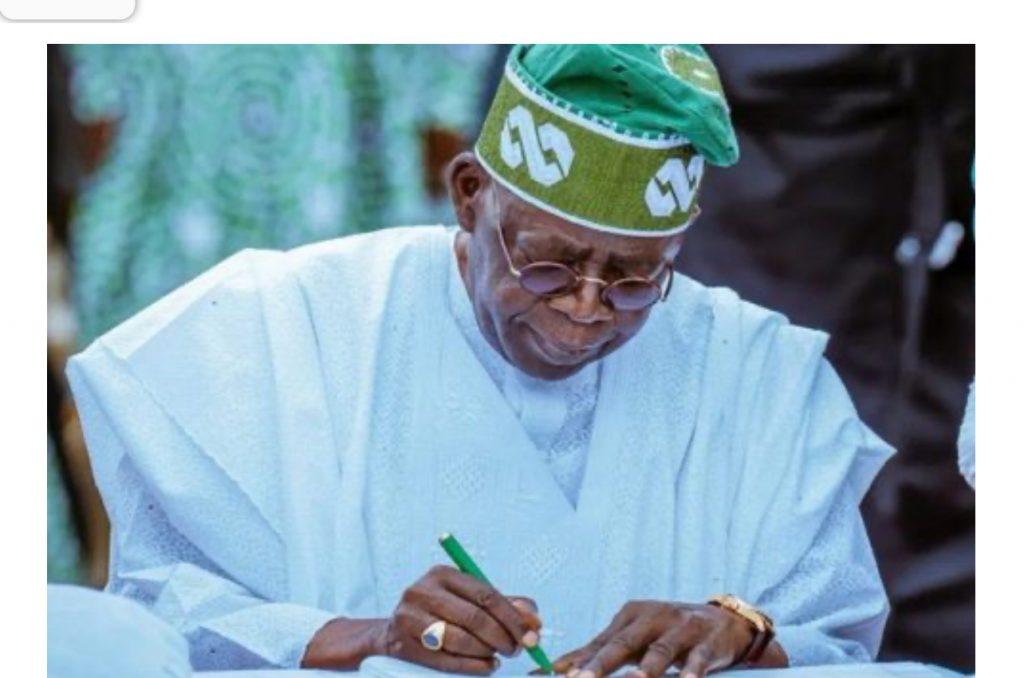
President Bola Tinubu has signed the Electoral Act 2026 (Amendment) into law, days after the Independent National Electoral Commission (INEC) released the timetable for the 2027 general elections.
The signing ceremony took place at the State House, Abuja, at about 5:00pm on Wednesday, with principal officers of the National Assembly in attendance.
The National Assembly had on Tuesday passed the Electoral Act 2026 (Amendment) Bill.
The latest amendment comes amid intense public debate over the electronic transmission of election results in real time.
Last week, protests erupted at the National Assembly complex as civil society organisations and opposition figures mounted pressure on lawmakers to mandate live transmission of results from polling units directly to INEC’s central server.
The protesters argued that real-time transmission would reduce result manipulation and strengthen public confidence in the electoral process.
However, the ruling All Progressives Congress (APC) and some stakeholders have raised concerns about the technical feasibility of live transmission, particularly in communities with weak telecommunications infrastructure. They have argued for a phased or hybrid approach that would allow manual collation where electronic systems fail.
news
EFCC Extends El-Rufai’s Stay in Custody Amid ₦432bn Probe
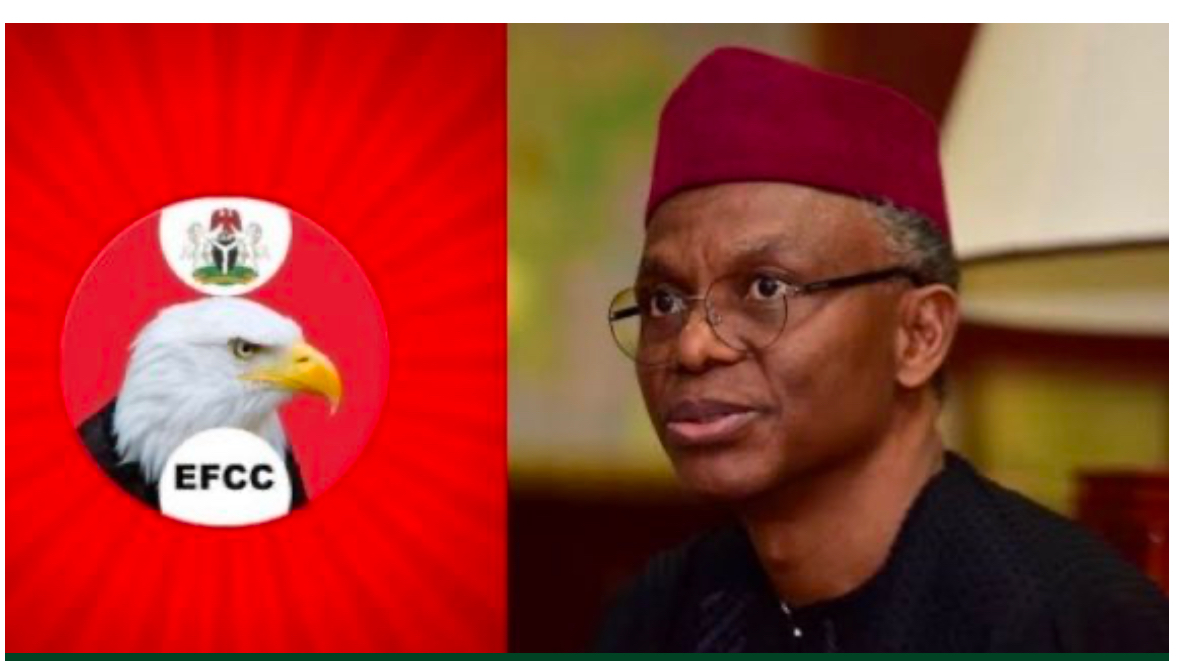
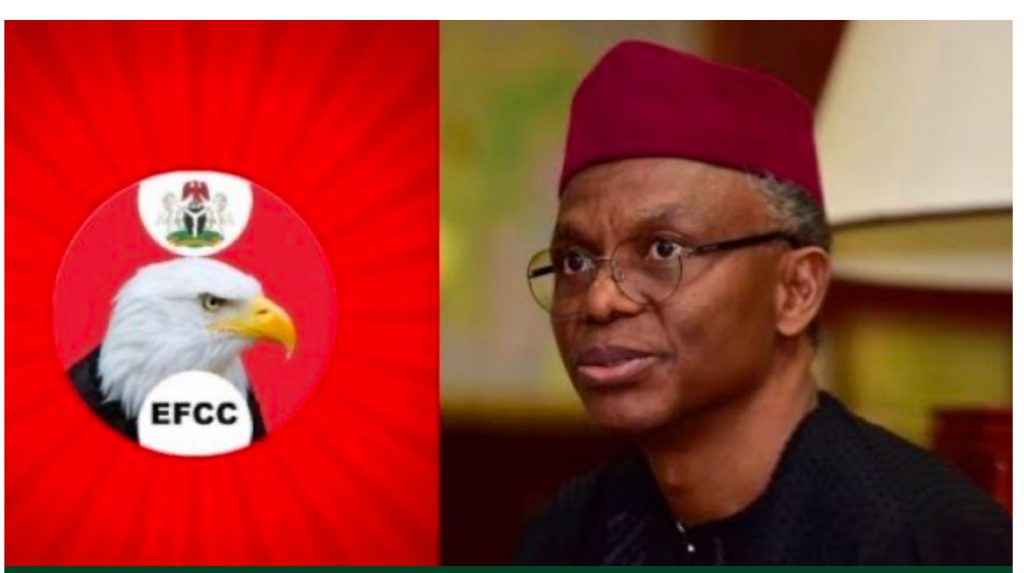
Former Kaduna State Governor, Nasir El-Rufai, on Tuesday spent the second night in the custody of the Economic and Financial Crimes Commission, as his lawyer, A.U Mustapha (SAN), pushes for his release on bail.
There are, however, indications that the commission may seek a remand order to extend his stay in custody to enable him to respond to questions posed by investigators handling his matter.
The former governor arrived at the EFCC headquarters in Abuja on Monday around 10 a.m. for questioning in connection with an alleged N432bn corruption probe. He was, however, detained at the commission, where investigators continued to grill him.
An official of the commission who pleaded anonymity said the anti-graft agency was considering obtaining a remand order after the expiration of the hours allowed by law to enable investigators conclude questioning him.
“Forget the speculations being peddled on social media that he has been released. He has not. El-Rufai is still with us and will be spending another night in custody.
“He is very much with us and will remain so because the investigators are considering getting a remand order after the expiration of the 48 hours allowed by law.
“The investigators need some time with him to answer questions arising from his eight years as governor in Kaduna State,” the source said.
Speaking in a telephone conversation with The PUNCH on Tuesday, El-Rufai’s counsel, Mustapha, confirmed that the former governor remained with the anti-graft agency, while insisting that his client had fully cooperated with investigators.
He described his client as a responsible citizen who is not a flight risk if granted bail.
Mustapha said, “Well, as a responsible citizen, he was invited and, true to his word, he honoured the invitation.
“As we speak, he is still with the EFCC. He is cooperating to the best of his capacity, and we hope that the EFCC, given its integrity, will be kind enough to admit him to bail because he is presumed innocent, and I am sure if he is granted bail, he will not jump bail.
“He is a responsible citizen, and everybody knows him. He came to Nigeria on his own volition. He wrote a letter that he was going to honour the EFCC invitation, and he kept his word as a man of integrity. We’re hopeful that very soon he will be granted bail.”
When asked about the specific allegations against his client, Mustapha declined to offer details.
“You’re asking the right question from the wrong person. That question can only be answered by the EFCC and not by me. I would just be speculating, and lawyers don’t do that.”
Pressed further on whether he witnessed parts of the interrogation and what it was about, Mustapha responded, “That would be prejudicial. It’s a confidential matter and not meant for public consumption.”
The EFCC’s interrogation is linked to the report of an ad hoc committee of the Kaduna State House of Assembly set up in 2024 to probe finances, loans, and contracts awarded between 2015 and 2023 during El-Rufai’s administration.
EFCC extends El-Rufai detention, Plateau indigenes killed, other top stories
Rep backs real-time electronic transmission of election results
The committee, chaired by Henry Zacharia, had alleged that several loans obtained during the period were not utilised for their intended purposes.
While presenting the report, the Speaker, Yusuf Dahiru Leman, claimed that about N423bn was allegedly siphoned under the former governor’s administration.
The committee recommended the investigation and prosecution of El-Rufai and some former cabinet members over alleged abuse of office, diversion of public funds, money laundering, contract awards without due process, and reckless borrowing.
The Assembly subsequently forwarded petitions to the EFCC and the Independent Corrupt Practices and Other Related Offences Commission.
El-Rufai has denied the allegations, describing the probe as politically motivated, and insisted that loans obtained during his tenure were properly appropriated and used for infrastructure, education, healthcare, and security.
On Monday, an EFCC source said the commission had been investigating the matter for about a year, noting that suspects are usually invited after investigations have reached an advanced stage.
“The commission has been investigating him for about a year now. As a commission, we don’t just rush to invite suspects. Persons accused are always the last; that is, after we might have done our investigation to an advanced stage.
“We are investigating him on the allegations against him by the Kaduna State Assembly,” the source said.
Meanwhile, in a separate development, the Department of State Services has filed criminal charges against El-Rufai before the Federal High Court in Abuja over alleged unlawful interception of the phone communications of the National Security Adviser, Nuhu Ribadu.
The three-count charge, marked FHC/ABJ/CR/99/2026, was filed under the Cybercrimes (Prohibition, Prevention, etc.) Amendment Act, 2024, and the Nigerian Communications Act, 2003.
According to the charge sheet, El-Rufai allegedly admitted during a February 13, 2026, appearance on Arise TV’s Prime Time Programme that he and unnamed associates unlawfully intercepted Ribadu’s communications.
Count One alleged that El-Rufai “did admit during the interview that you and your cohorts unlawfully intercepted the phone communications of the National Security Adviser, Nuhu Ribadu,” an offence said to be punishable under Section 12(1) of the Cybercrimes Amendment Act.
Count Two accused him of acknowledging knowledge of an individual involved in the alleged interception without reporting it to security agencies, while Count Three alleged that he and others still at large used technical equipment that compromised public safety and national security.
The prosecution further claimed that the alleged act, reportedly admitted during the television interview, caused “reasonable apprehension of insecurity among Nigerians.”
He is yet to be arraigned.
news
Real-Time Results: Senate, House Fail to Align on INEC Powers
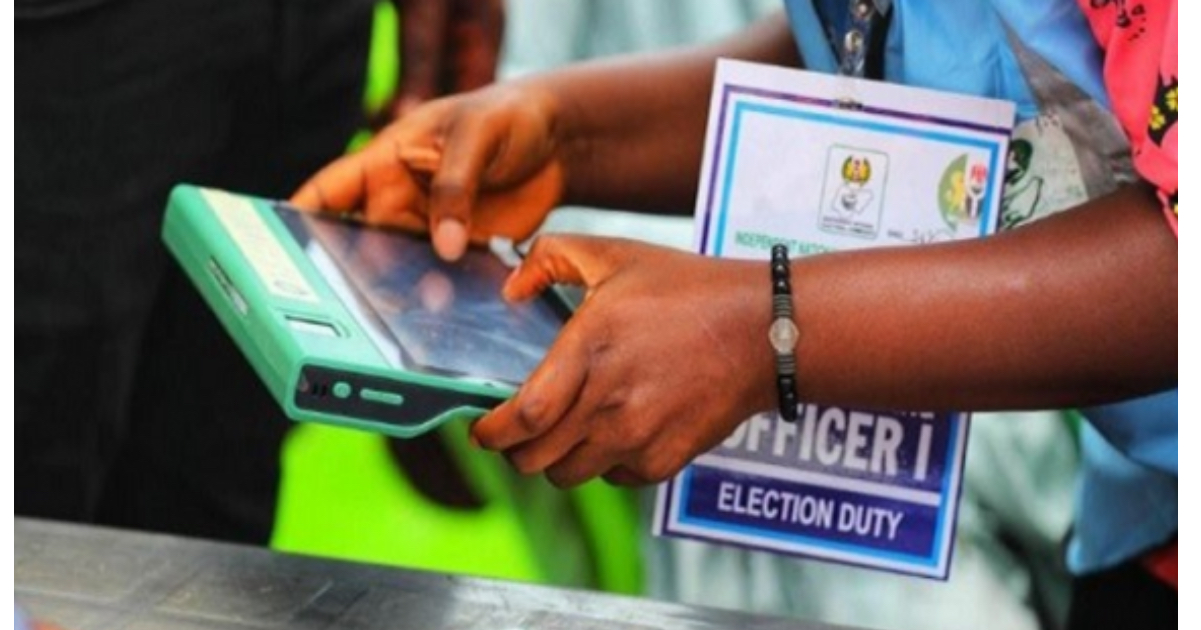
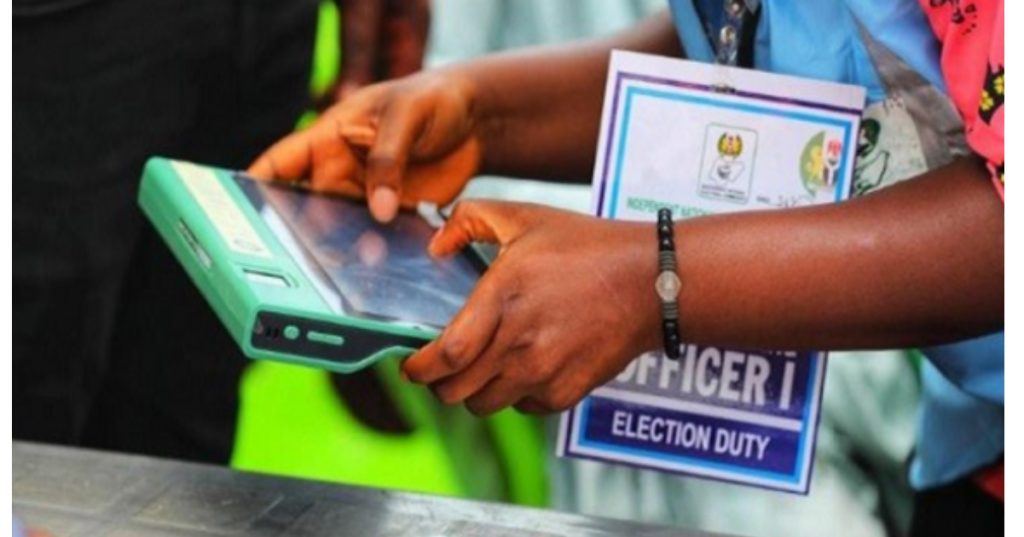
Harmonisation of versions begins •Red Chamber okays e-upload to IREV
The controversy over the passage of the Electoral Act (Amendment) Bill 2026 at the Senate was laid to rest yesterday.
The Red Chamber endorsed electronic transmission of election results, without including the contentious “real-time” provision.
This was shortly before it adopted the Votes and Proceedings of the passage of the Bill, which scaled third reading on February 4, during a rowdy session.
Because the version passed by the Senate did not include “real-time” transmission, unlike the version earlier passed by the House of Representatives, a conference committee of both chambers will harmonise the bills before final approval and eventual presentation for presidential assent.
The amendment of Section 60(3), effected yesterday and passed along with other sections read by Senate President Godswill Akpabio, states: “The Presiding Officer shall electronically transmit the results from each polling unit to the INEC Result Viewing Portal, and such transmission shall be done after the prescribed Form EC8A has been signed and stamped by the Presiding Officer and countersigned by the candidates or polling agents where available at the polling unit.
“But if the electronic transmission of the result fails as a result of communication failure, and it becomes impossible to transmit the result electronically, the signed and stamped Form EC8A by the Presiding Officer, and countersigned by the candidates or polling agents where available, shall in such a case be the primary source of collation and declaration of results.”
This differs slightly from the version passed by the House of Representatives in December, which states: “The Commission shall electronically transmit the results from each polling unit to the IREV portal in real time, and each transmission shall be done simultaneously with the physical collation of results.”
The House also passed Section 60(5), which provides: “The Presiding Officer shall transmit the results, including the number of accredited voters, to the next level of collation.”
The Electoral Act 2022, under which the 2023 elections were conducted and which is in the process of being repealed, states in part under Section 60(5): “The Presiding Officer shall transfer the result, including the total number of accredited voters and the result of the ballot, in a manner as prescribed by the Commission.”
Before senators began proceedings yesterday, protesters, for the second consecutive day, gathered in front of the National Assembly to call for the passage of real-time electronic transmission of election results.
Among the protesters was the former Governor of Rivers State and immediate past Minister of Transportation, Chibuike Amaechi.
The police prevented the protesters from gaining access to the National Assembly complex.
Inside the chamber, the Senate passed the Electoral Act Amendment Bill after a heated debate in a rowdy plenary session.
At the session presided over by Senate President Godswill Akpabio, senators modified their earlier position on real-time electronic transmission of poll results.
They consequently approved a revised clause mandating electronic transmission of results from polling units to the INEC Result Viewing Portal (IREV), with a fallback mechanism in the event of network failure.
In such instances, Form EC8A, on which results are recorded, would serve as the basis for collation.
The amendment, once harmonised with the House of Representatives’ version and signed into law by the President, is expected to legalise the use of IREV in the result transmission process, unlike what obtained during the 2023 elections.
There was palpable tension in the hallowed chamber as the initial proposal to adopt the Votes and Proceedings of the previous sitting led to heated procedural disputes, which were carefully managed by Akpabio.
Outside the National Assembly, protesters continued to agitate for the inclusion of the real-time electronic uploading clause, which had been upheld in the House of Representatives’ version of the bill.
The modification followed the approval of a motion by the Senate Chief Whip, Mohammed Tahir Monguno (Borno North), titled: “Motion for Rescission on Clause 60(3) of the Electoral Act, 2022 (Repeal and Enactment) Bill, 2026.”
Moving the motion, Monguno recalled that the bill had been passed by the Senate on February 4 but said “fresh issues have emerged in respect of Clause 60(3), which require further legislative consideration to ensure the conduct of smooth, transparent and credible elections in Nigeria.”
Invoking Orders 1(b) and 52(6) of the Senate Standing Orders, 2023 (as amended), he urged the chamber to rescind its earlier decision on the clause and recommit it to the Committee of the Whole for reconsideration and passage.
Trouble began when Monguno rose to move the motion while the Senate President was reading out the rules on Votes and Proceedings.
His action triggered confusion, with many senators questioning whether the Senate could revisit a decision already taken within the same legislative session.
Some senators argued that Order 1(b) empowered the Senate to suspend normal procedure.
Following a voice vote, the chamber agreed to allow Monguno to proceed.
Monguno said ambiguity surrounding the earlier amendment, particularly the controversy over the use of the words “transfer” and “transmission” of election results, had generated public concern and required urgent legislative clarification.
He proposed a fresh amendment stipulating that presiding officers at polling units must electronically transmit results to the INEC Result Viewing Portal (IREV) after completing and signing Form EC8A.
He added that where electronic transmission fails due to communication challenges, the signed and stamped Form EC8A would serve as the primary source for collation and declaration of results.
After the motion was seconded by Senator Abba Moro, who described the development as “a victory for democracy,” the chamber descended into disorder when the Senate President declared that the voice vote had carried the amendment.
Several senators protested and invoked Order 72, which allows any senator to challenge the opinion of the presiding officer by calling for a division.
Citing Order 72, Senator Enyinnaya Abaribe demanded individual voting, triggering loud protests, shouts of points of order, and repeated calls to order by Akpabio.
At the height of the confusion, Abaribe withdrew his request for a division, a move that further unsettled the chamber.
Akpabio ruled that Abaribe’s withdrawal stood, thereby upholding the voice vote that carried the amendment.
Following the approval of the revised clause, the Senate adopted the Votes and Proceedings of the previous sitting, bringing the stormy session to a close.
African currency exchange services
To fast-track harmonisation of the Electoral Bill with the House of Representatives’ version, the Senate expanded its conference committee from nine to 12 members to match the number of conferees from the House.
Reps committee
Electoral Reform Bill at harmonisation stage, Reps say
Reps committee summons finance, agriculture ministers, auditor general
The committee is chaired by Senator Simon Bako Lalong, with Mohammed Tahir Monguno, Adamu Aliero, Orji Uzor Kalu, Abba Moro, Asuquo Ekpenyong, Aminu Iyal Abbas, Tokunbo Abiru, Adeniyi Ayodele Adegbonmire, Jibrin Isah (Echocho), Banigo Ipalibo and Onyekachi Nwebonyi as members.
Expressing optimism that the committee would conclude its work swiftly, Akpabio said: “This is a matter of urgency. If you are able to conclude within the next few days or one week, the President should be able to sign this amended Electoral Bill within this month.”
Former Vice President Atiku Abubakar, who spoke in Minna, the capital of Niger State, said electronic transmission of results would restore sanity and avert chaos.
However, he expressed doubts about the ability of the proposed law to guarantee real-time transmission.
Atiku said: “This is below the expectations of Nigerians. During the last elections, Nigerians were expecting real-time electronic transmission of election results at various levels of the election, but what we got was a mixture of electronic and manual uploading, which caused more confusion and chaos.
“It will be best if we have a single-tier electronic transmission, which is real-time electronic transmission, which is the preference of all Nigerians.”
The African Democratic Congress (ADC) stalwart urged opposition political parties to reject the Senate’s decision to allow manual uploading of election results.
He said: “We need all opposition political parties to pursue this issue. We should not allow it to rest the way they wanted it to rest today at the Senate.”
The African Democratic Party (ADP) warned of likely public distrust of the electoral process if electronic transmission is not upheld.
The party’s National Chairman, Yabagi Sani, said in a statement that “while the Senate’s reversal of its earlier rejection of electronic transmission reflects public pressure and democratic expectation, the ADP notes that a reform that does not guarantee mandatory, real-time transmission cannot restore electoral credibility.”
The ADC National Publicity Secretary, Bolaji Abdullahi, described the Senate’s modified position as a victory for the resilience, vigilance and rising political consciousness of Nigerians.
He said in a statement: “It demonstrates, in the clearest possible terms, that when citizens act with unity, clarity of purpose and resolve, they can indeed move mountains.”
The ADC credited Nigerians’ coordinated civic actions, noting: “From the street protests to the digital campaigns, the Nigerian people have once again shown that sovereignty truly belongs to them.”
Hailing the protesters, Abdullahi added: “We salute the courage and tenacity of Nigerians. We commend every citizen who raised a voice, whether online or offline, to resist legislative mischief that threatened to undermine our electoral integrity.”
A former President of the Nigerian Bar Association (NBA), Dr Olisa Agbakoba (SAN), said the adoption of real-time upload of results would engender public trust and close electoral loopholes.
He said the regulatory process must be adequately backed by law.
Agbakoba noted in a statement that the 2023 election exposed a critical gap in the electoral legal framework, recalling that despite INEC’s deployment of the IREV portal for electronic transmission of results, the Supreme Court ruled that the innovation lacked legal force.
The human rights lawyer explained that the IREV portal currently serves only for public viewing and is not admissible as evidence of results in election petitions.
He said: “The message was unmistakable: without explicit statutory provision, electronic transmission remains optional and legally inconsequential, no matter how transparent or efficient it may be.
“This legal gap creates an insurmountable evidentiary burden in election petitions.”
The Tanimu Turaki-led faction of the PDP rejected the Senate’s position on transmission of election results, describing the senators as “clever by half.”
The party’s National Publicity Secretary, Comrade Ini Ememobong, said in a statement that the addendum introduced by the Senate to allow manual transmission was a backdoor attempt to achieve the same objective as the earlier rejection.
The statement reads in part: “We have taken note of the outcome of the Senate’s reconsideration of its earlier position on the real-time electronic transmission of election results, wherein an addendum was introduced to permit manual transmission where technology is said to fail.
“We hold the firm view that this addendum is nothing more than a backdoor attempt to achieve the same objective as the earlier outright rejection, while pretending to align with the wishes of the Nigerian people.
“Manual transmission is already sufficiently provided for under the Electoral Act. The current agitation for electronic transmission is aimed at introducing a second-layer authentication mechanism that prevents the alteration of results en route to collation centres, a malpractice that has historically been the bane of Nigeria’s electoral process.
“Furthermore, it is inconceivable that the same BVAS technology, which successfully undertakes accreditation throughout an election, would suddenly become unreliable for the transmission of results and accreditation data arising from that same exercise.
“This caveat is a clear indication of the humongous fear being harboured by senators opposed to electronic transmission, particularly Senate President Godswill Akpabio, whom we reasonably suspect remains haunted by the ghost of his 2019 election loss, occasioned by the deployment of technology to curb over-voting.
“They must be reminded that Nigeria is bigger than their narrow personal and political interests.
“We therefore urge members of the Conference Committee to adopt the version of the bill passed by the House of Representatives as the harmonised position, if indeed they are committed to delivering credible elections in 2027.
“They must rise above the instincts of politicians fixated on the next election and instead focus on the sustenance of democracy and the protection of future generations.
“Should this democracy fail, the names of Senator Akpabio and all senators who voted against electronic transmission will undoubtedly occupy a conspicuous chapter in the book of infamy.
“We also call on Nigerians to remain resolute in their demand for real-time electronic transmission of election results. This is no time for excuses. This hard-won democracy is far too valuable to be left in the hands of politicians alone.”
-

 news5 years ago
news5 years agoUPDATE: #ENDSARS: CCTV footage of Lekki shootings intact – Says Sanwo – Olu
-

 lifestyle6 years ago
lifestyle6 years agoFormer Miss World: Mixed reactions trail Agbani Darego’s looks
-

 health5 years ago
health5 years agoChairman Agege LG, Ganiyu Egunjobi Receives Covid-19 Vaccines
-

 lifestyle4 years ago
lifestyle4 years agoObateru: Celebrating a Quintessential PR Man at 60
-

 health6 years ago
health6 years agoUPDATE : Nigeria Records 790 new cases of COVID-19
-

 health6 years ago
health6 years agoBREAKING: Nigeria confirms 663 new cases of COVID-19
-

 entertainment1 year ago
entertainment1 year agoAshny Set for Valentine Special and new Album ‘ Femme Fatale’
-

 news9 months ago
news9 months agoBREAKING: Tinubu swears in new NNPCL Board


